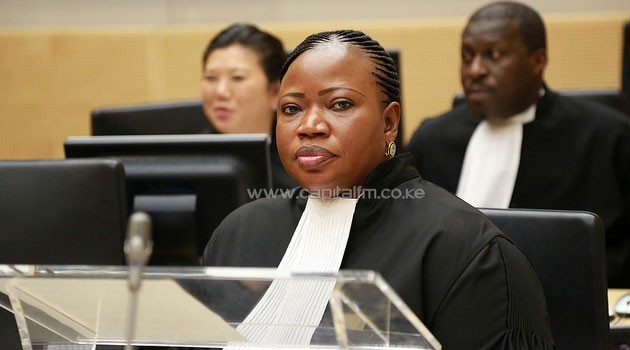
Bensouda filed an application on January 24 seeking leave to appeal against a decision that allowed Ruto to skip some sessions of his trial, arguing that he should be compelled to be continuously present like his co-accused Joshua arap Sang/FILE
Bensouda filed an application on January 24 seeking leave to appeal against a decision that allowed Ruto to skip some sessions of his trial, arguing that he should be compelled to be continuously present like his co-accused Joshua arap Sang.
She expressed concern that a re-hearing or recalling of witnesses would be requested in instances that Ruto was absent from court.
Trial Chamber V(a) by majority however said the risks of a re-hearing or recalling of witnesses as explained by Bensouda had reduced.
According to the judges, the remarks made by Bensouda of a re-hearing and recalling of witnesses were ‘highly speculative.’
“The Majority of the Chamber considers that the risk of any hearings which Mr Ruto did not attend needing to be repeated has significantly decreased. This risk becomes even more theoretical if one is to consider the Appeals Chamber’s standard of review, whereby the Appeals Chamber ‘will not interfere with [another] Chamber’s exercise of discretion […] merely because the Appeals Chamber, if it had the power, might have made a different ruling,” the judges explained.
In rejecting the request to appeal, the judges did not find it prudent to discuss recalling of witnesses and re-hearing as suggested by Bensouda.
“In view of the limited likelihood that the Appeals Chamber would require the Chamber to hold hearings anew or recall witnesses, or, if so, that the number of such hearings would be significant, the Majority of the Chamber sees no reason why the Issues should be resolved at this stage. It is not persuaded that an immediate resolution of the Issues would materially advance the proceedings,” the judges said.
Trial Chamber V(a) on January 15 excused Ruto from continuous presence and allowed him to be represented by his lawyers. READ Ruto exempt from presence at ICC trial with conditions
However he was given nine conditions in which his physical presence will be mandatory.
They include the first five days of trial after a court calendar break, entirety of delivery of judgment and sentencing hearings.
His presence will also be required during presentation of victims concerns, during victim impact hearings and reparations for victims.
In other instances, Ruto’s presence will be compulsory upon the request of judges like he has been directed to be present during the entire testimony of witness P028 who is to testify after the Easter break.








































